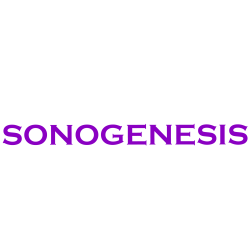Summary: Combining music with audio beat stimulation helps reduce anxiety in some people more effectively than listening to music alone.
Source: PLOS
Treatments integrating music and auditory beat stimulation are effective in reducing state anxiety in some patients, according to a new study published this week in the open-access journal PLOS ONE by Adiel Mallik and Frank Russo of the Ryerson University, Canada.
Anxiety has been steadily increasing, particularly in the adolescent and young adult populations, over recent decades. Studies have previously shown that listening to music can reduce anxiety, perhaps even more effectively than some anti-anxiety medications. However, quantitative data on the effects of personalized music on anxiety has been lacking.
In the new study, the researchers randomized 163 patients taking anti-anxiety medications to participate in an at-home treatment session involving music, auditory beat stimulation, both, or pink noise—background sounds similar to white noise. The music was selected for each patient using LUCID’s artificial intelligence which curates music based on the patient’s emotional state and music preferences.
Auditory beat stimulation involves combinations of tones, played in one or both ears, designed to trigger changes to brain activity. In all groups, patients were asked to download a customized application on their smart phone for the treatment, close their eyes, and listen to a 24-minute session.
Among people with moderate anxiety before the treatment session, greater reductions in somatic anxiety—the physical symptoms of anxiety—were seen in people who listened to both music and ABS (p=0.04, effect size=0.83), or those who listened to music alone (p=0.05, effect size=0.52), compared to those who listened to pink noise.
Studies have previously shown that listening to music can reduce anxiety, perhaps even more effectively than some anti-anxiety medications. Image is in the public domain
The greatest reductions in cognitive state anxiety—the aspect of anxiety related to thoughts and feelings—were also seen in moderate trait anxiety participants who listened to both music and ABS. Among people with high trait anxiety before the session, the music-alone group had significantly higher reductions in anxiety compared to the ABS-alone group (p=0.04, effect size=0.72).
The authors conclude that sound-based treatments can be effective in reducing state anxiety and potentially offer a simple and easily distributable method of treating anxiety in a segment of the population.
Drs. Russo and Malik add: “With the pandemic and remote work, there has been a remarkable uptick in the use of digital health tools to support mental health. The results of this clinical trial indicate great promise for the use of digital health tools, such as LUCID’s digital music therapy, in the management of anxiety and other mental health conditions.”
“The findings from this research are exciting as they indicate that personalized music shows great promise in effectively reducing anxiety in specific segments of the population that suffer from anxiety. Hopefully, with additional research, we can help build a solid evidence base which further supports the use of personalized music as an additional tool in the clinician’s toolbox that can be used to help reduce anxiety in the patient population.”
COI STATEMENT
Dr. Frank Russo has served as an advisor for LUCID (the company which supplied the music curation system) since 2018 and as Chief Science Officer since 2021. He has been granted stock options, which may qualify him to financially benefit from commercial applications of the technology considered here.
About this music and anxiety research news
Author: Hanna Abdallah
Source: PLOS
Contact: Hanna Abdallah – PLOS
Image: The image is in the public domain
Original Research: Open access.
“The effects of music & auditory beat stimulation on anxiety: A randomized clinical trial” by Adiel Mallik et al. PLOS ONE
Abstract
The effects of music & auditory beat stimulation on anxiety: A randomized clinical trial
Background and objectives
Music and auditory beat stimulation (ABS) in the theta frequency range (4–7 Hz) are sound-based anxiety treatments that have been independently investigated in prior studies. Here, the anxiety-reducing potential of calm music combined with theta ABS was examined in a large sample of participants.
Methods
An open-label randomized controlled trial was conducted with participants taking anxiolytics (n = 163). Participants were randomly assigned using the Qualtrics randomizer algorithm, to a single session of sound-based treatment in one of four parallel arms: combined (music & ABS; n = 39), music-alone (n = 36), ABS-alone (n = 41), or pink noise (control; n = 47). Pre- and post-intervention somatic and cognitive state anxiety measures were collected along with trait anxiety, personality measures and musical preferences. The study was completed online using a custom application.
Results
Based on trait anxiety scores participants were separated into moderate and high trait anxiety sub-groups. Among participants with moderate trait anxiety, we observed reductions in somatic anxiety that were greater in combined and music-alone conditions than in the pink noise condition; and reductions in cognitive state anxiety that were greater in the combined condition than in the music-alone, ABS-alone, and pink noise conditions. While we also observed reductions in somatic and cognitive state anxiety in participants with high trait anxiety, the conditions were not well differentiated.
Conclusions
Sound-based treatments are effective in reducing somatic and cognitive state anxiety. For participants with moderate trait anxiety, combined conditions were most efficacious.
Source – Neuroscience news


